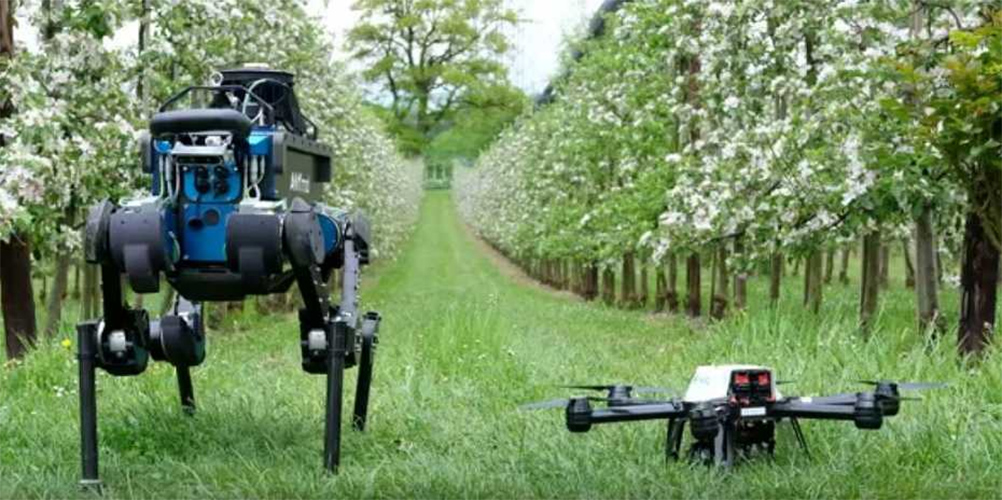Kiev. Ukraine. Ukraine Gate – February 08, 2021 – Agriculture
Farmers will soon have an alternative to spraying agricultural land. British startups – Small Robot Company and RootWave – have announced a partnership and development of a high-precision robot that will destroy weeds with electricity.
Earlier, Small Robot developed a series of small agricultural robots called Tom, Dick, and Harry to automate certain routine tasks in agriculture. Tom Is a reconnaissance robot similar to a rover. He uses computer vision to identify weeds in the field, cultivating about 20 hectares of land a day. DickIs a weeding robot that removes weeds either by spraying the area with microdoses of pesticides or by crushing. The next stage in the development of robotic agricultural machines will be to combine their options with RootWave technology, thanks to which all weeds can be destroyed by electric current. Discharges of electricity contribute to the fact that weeds seem to “boil” from the inside, losing further ability to reproduce.
According to Sam Watson Jones, executive director of Small Robot Company, farmers are really desperate for an alternative to chemical weed control. Existing chemicals are becoming less effective, and there are widespread bans on chemicals such as glyphosate. Experts suspect that glyphosate contributes to the development of cancer. That is why it was banned in Austria, the Czech Republic, Italy, and the Netherlands, and in Germany and France, it is planned to stop using it by 2023.
According to Watson Jones, the main problem with agriculture is that there is no good alternative to glyphosate. It is an affordable and relatively safe general-purpose herbicide, and most other drugs are already banned because they are much more dangerous.
Mechanical weeding or loosening is not always effective in removing plants and can damage the soil. At the same time, the destruction of weeds by lasers or jets of hot water requires a lot of energy and is expensive. According to RootWave CEO Andrew Diprose, replacing the weed control method with the proposed one can be just as cost-effective as using chemical herbicides (at a price of 6 euros per hectare). By the fall of 2021, companies plan to create a system for commercial testing.
If successful, weed control will be a challenge for the global herbicide market, which has a turnover of $ 26 billion a year and is dominated by large companies such as Bayer, DowDuPont, BASF, and Syngenta.
A number of startups have emerged in the robotics market that is developing weed control equipment and have challenged the traditional spraying model. Including the Swiss company EcoRobotix, which uses computer vision to detect weeds, supplying a dose of chemicals only to weeds. According to EcoRobotix, such a system uses 20 times fewer herbicides than traditional methods. Danish startup Agrointelli is also developing agricultural robots that supply herbicides topically, and French company Naio Technologies is creating robots for mechanical weeding on large vegetable farms.
RootWave, in partnership with the Dutch agricultural machinery company Steketee, has developed an electric “lightning” for weeds that can be placed on a tractor.
Large agrochemical companies are also promoting spot farming. In 2017, the American tractor company John Deere acquired Blue River, a company in terms of computer vision and spot spraying for $ 305 million. At the same time, a large number of companies are still focused on the use of large tractors. A large-scale revolution in agriculture will occur only when the industry moves to the use of smaller machines. They will make agriculture more cost-effective for farmers who own small plots of land.
Read also: The Dutch Investment in the Production of Vegan Meat in Zhytomyr!







